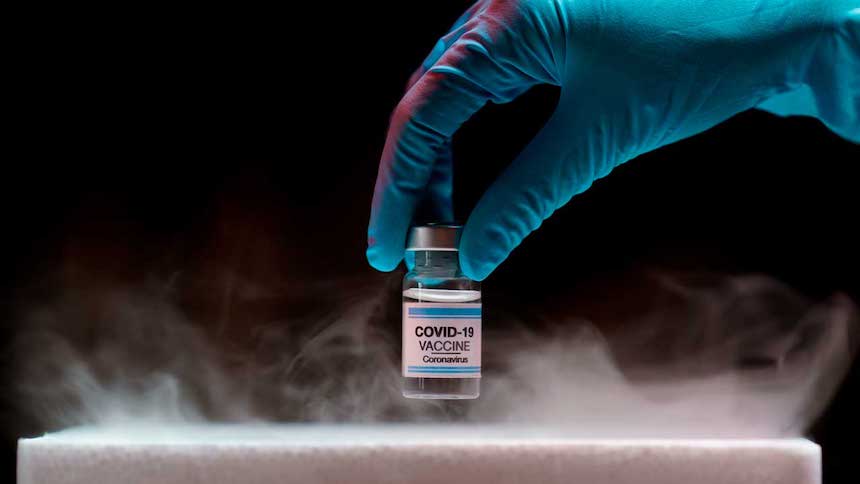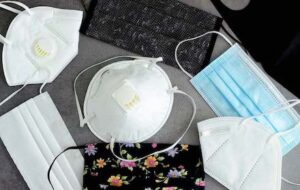
It is no longer secret that COVID19 vaccines are ready. Scientists’ unmatched efforts to develop the vaccines have eventually borne fruit, raising hopes for seeing an end to the pandemic, which has thrown lives out of gear.
Global drug companies Pfizer & BioNTech, and Moderna, have announced the successful completion of their COVID19 vaccine development, which symbolizes unmatched scale, speed, and scientific advances.
According to the companies, the vaccine of Pfizer and BioNTech is 95 percent effective, and the effectiveness of Moderna’s vaccine is also 95 percent. Along with the good news, a hurdle has cropped up–keeping the vaccines in minus degree temperature environments. Vaccines are fragile. They require rigorous temperature control, or else they get spoiled. And vaccines get damaged a lot due to inappropriate temperatures.
According to the World Health Organization, around half of the vaccines transported across the world get damaged and become unfit for use. And inappropriate temperatures cause the maximum damages. And all of them lose their potency if they get exposed to temperatures outside the prescribed range.
The susceptibility of vaccines to temperature fluctuations stands a more significant problem in the storage and transportation of COVID19 vaccines.
Both of the vaccines are based on a genetic material called mRNA that necessitates stringent temperature environments. While Pfizer & BioNTech’s vaccine should be stored at minus 70 degrees C, Moderna’s vaccine needs to be stored at minus 20 degrees C.
Why the Vaccines Require Freezing Temperatures
The vaccines requiring minus degree C temperatures for storage are due to the usage of mRNA in them.
The mRNA technology has been instrumental in enabling scientists to develop them within a reasonable time.
But, the mRNA itself is very fragile. It breaks down easily. It was the intrinsic instability of mRNA that posed grave challenges in developing mRNA-based vaccines in the past. Besides, the biological material used to pack the mRNA was also a bit unstable.
However, scientists did not give up. They did a lot of work in developing methods to make mRNA more stable. So, scientists can now use mRNA in developing vaccines.
However, mRNA still requires freezing temperatures to keep its stability intact. It is due to this reason that the vaccines need minus degrees C temperature environments. And when it comes to the Pfizer & BioNTech’s vaccine, it requires a freezing temperature of minus 70 degrees C, which is much colder for a standard freezer to store the vaccine effectively. So, the healthcare facilities will need an ultra low-temperature freezer for storing the vaccine effectively.
Why the Vaccines Need Ultra Cold Freezers
As the vaccines call for freezing temperatures, the distribution channel should be equipped with an adequate number of ultra-low temperature freezers to enable the vaccine’s wide-scale administration. Without the sufficiency of such freezers, mass vaccination will be hard to achieve.
The moot issue is that such freezers are not already available in hospitals, pharmacies, and private doctor chambers. The only answer to the problem is purchasing such freezers for storing the vaccines.
Moderna’s vaccine has some flexibility in comparison to Pfizer & BioNTech’s vaccine. While the Pfizer & BioNTech’s vaccine can be stored in a standard freezer for about five days without spoiling it, Moderna’s vaccine can remain effective in a standard refrigerator for about 30 days.
How to Choose an Ultra-Low Temperature Freezer
It has become clear that an ultra-low temperature freezer has become the mainstay of healthcare facilities to administer COVID19 vaccines to people effectively.
But there are a few things to consider before you shell out money in purchasing such a freezer. Therefore, consider the following factors beforehand:
Security
Choose a freezer with an electronic lock and built-in temperature monitoring systems. With the facilities, you can protect the vaccines from unauthorized access or power outages. Also, thick and well-insulated inner walls will restrict any quick warm-up inside the unit.
Performance
Ensure the unit you choose can maintain the freezing temperature consistently. Look for robust inner doors with gaskets and easy-to-maintain door gaskets to maintain a uniform and consistent temperature inside it.
Alarm System
Choose a unit with an automatic alarm system. If the inside temperature fluctuates due to any reason, the alarm should send a signal so that you can take the necessary action. You cannot allow any temperature fluctuations as that can damage the vaccines.
The right unit will ensure reliable storage of the vaccines. It has to give you the confidence that the inside temperature is strictly maintained.






